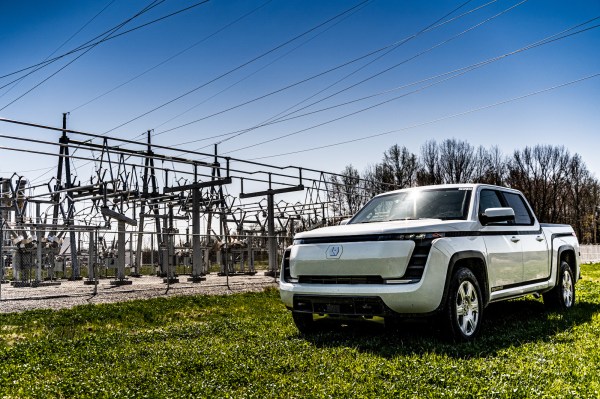
Lordstown Motors has emerged from bankruptcy with a new name and a nearly-singular focus: continuing its lawsuit against iPhone-maker Foxconn for allegedly “destroying the business of an American startup.”
The company announced in a late Thursday regulatory filing that it has put into effect a Chapter 11 restructuring plan that was recently approved by the Delaware Bankruptcy court. That makes it one of the first EV startups to survive the bankruptcy process in some form, albeit extremely diminished. Electric Last Mile Solutions liquidated in a Chapter 7 proceeding in 2022, while IndiEV’s Chapter 11 proceeding is still playing out in California. A decade ago, both Fisker Automotive and Coda sold themselves off to other buyers in their Chapter 11 restructurings.
Now known as Nu Ride, Inc., the reconstituted version of Lordstown Motors will also pursue “potential business combinations,” though it did not say what kinds of mergers it is seeking. The company has little left to its name. It sold the former General Motors factory it once owned to Foxconn; the assets related to its electric pickup truck were snapped up by Lordstown founder Steve Burns.
With the restructuring plan in effect, Nu Ride is now being led by an entirely new board of directors and slate of executives. It will now trade on the over-the-counter markets as “NRDE.”
The newly-named company has two federal investigations and other lawsuits that it needs to resolve beyond its beef with Foxconn. The Securities and Exchange Commission recently charged the company with misleading investors about the potential success of its defunct electric pickup truck, forcing Lordstown to set aside $25.5 million to help settle some of the ongoing shareholder lawsuits. That investigation is still active, according to the agency, as is one from the U.S. Attorney’s Office for the Southern District of New York.
Lordstown Motors sued Foxconn in June 2023 when it initially filed for bankruptcy protection. It claimed the Taiwanese conglomerate misled the startup about its plans to collaborate on a lineup of electric vehicles. Lordstown’s lawsuit has more or less been on hold while the Chapter 11 proceedings played out.
Foxconn now operates the factory Lordstown once owned, and even built a few dozen of the startup’s electric pickup trucks before they had to be recalled. Foxconn’s effort to become a contract manufacturer for American EVs has mostly failed to date. Two of its four prospective customers — Lordstown and IndiEV — filed for bankruptcy, while Fisker (which is reportedly weighing its own bankruptcy filing) has recently distanced itself from the conglomerate, saying it would rather partner with an established automaker. The only thing Foxconn has been making in its Ohio factory are tractors for California-based Monarch.

